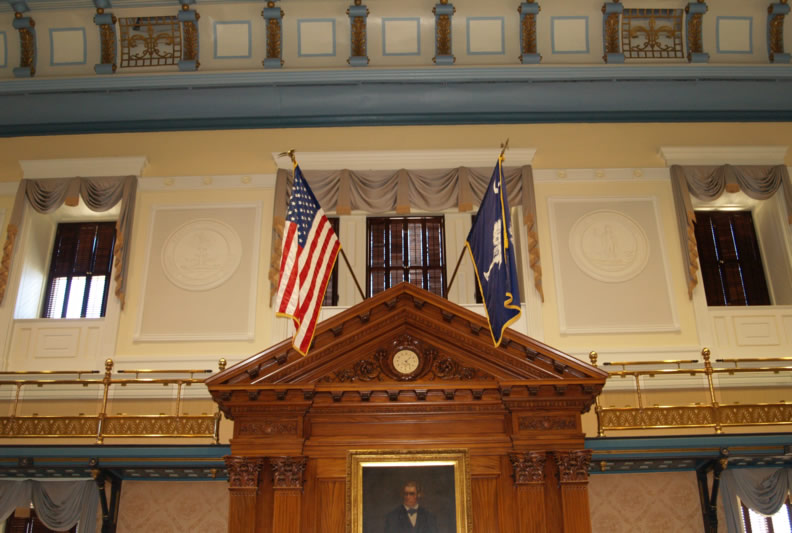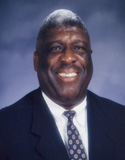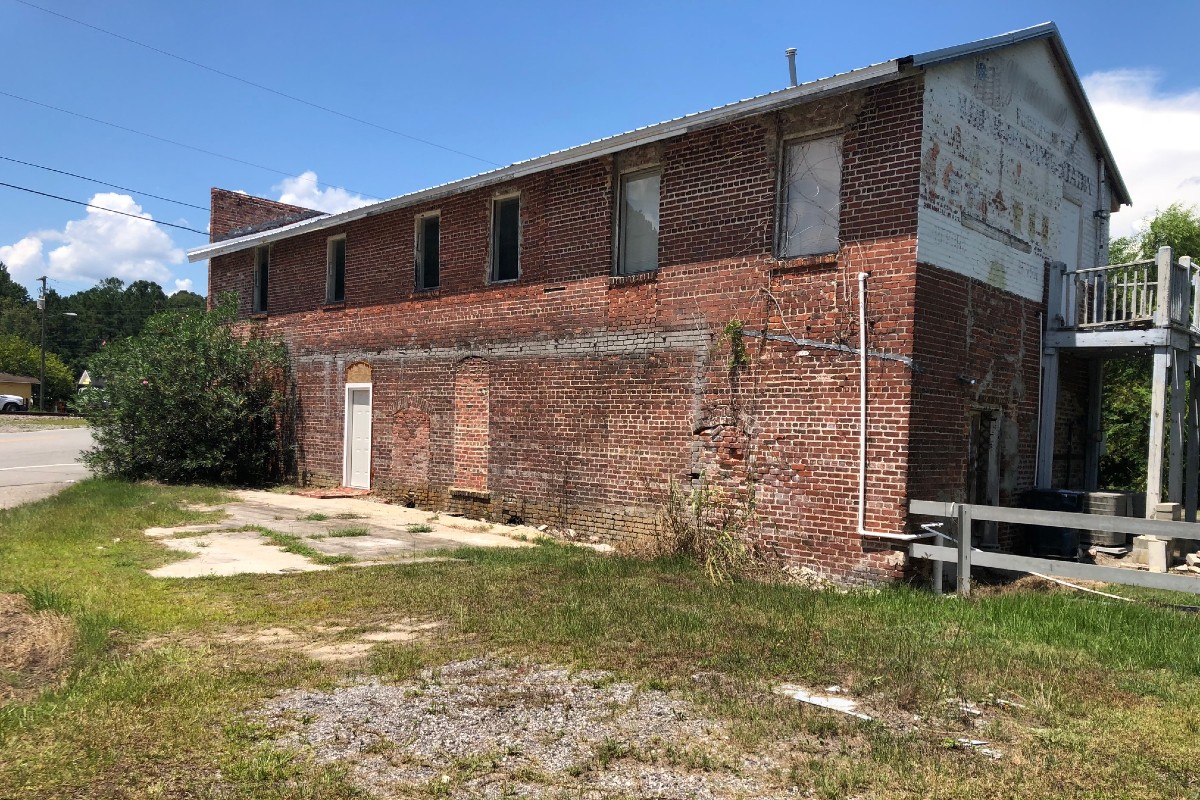INSIDE ISSUE 19.39 | Sept. 25, 2020
 BIG STORY: Watch these 9 state Senate races in November
BIG STORY: Watch these 9 state Senate races in November
NEWS BRIEFS: Corporate tax breaks take millions from S.C. schools, report says
SPOTLIGHT: ACLU of South Carolina
COMMENTARY, Brack: It’s time for Trump to go
MY TURN, Alterman: Ginsburg was a giant for justice, equality
LOWCOUNTRY, Ariail: Greenbacks versus “green”
FEEDBACK: Dems will get some pickups in Beaufort County
MYSTERY PHOTO: Old building with interesting former life
HISTORY: Order a copy of new book of facts today
Watch these 9 state Senate races in November

By Lindsay Street, Statehouse correspondent | As Democrats seek to flip four Senate seats in the Lowcountry in the Nov. 3 election, Republicans are looking to wrest five Democratic seats in reddening rural districts in the Upstate and Midlands.
 Of the Senate’s 46 seats, 27 currently are held by Republicans and 19 are held by Democrats. There are 32 seats facing a general election challenge in the Senate, but not all are competitive. As with the House races, changing demographics for the Charleston area and for rural parts of the state are the ingredients to making a competitive race.
Of the Senate’s 46 seats, 27 currently are held by Republicans and 19 are held by Democrats. There are 32 seats facing a general election challenge in the Senate, but not all are competitive. As with the House races, changing demographics for the Charleston area and for rural parts of the state are the ingredients to making a competitive race.
“Democrats could pick up four races in Charleston County, and if Democrats win four races in Charleston County, they would be looking at a tie (in the Senate),” Democratic strategist Tyler Jones of Charleston said, adding that a tie could benefit Democrats since not all Republicans vote along party lines. He said a tie would have big consequences in 2021, a redistricting year.
But getting to a tie will be hard since Republicans are looking to pick up five Democratic seats.
“No fear at all about losing the Senate at all,” South Carolina Republican Party Chair Drew McKissick said. “There are seats that are ripe for Republicans to win in this cycle in the Senate.”
McKissick said having President Donald Trump and U.S. Sen. Lindsey Graham at the top of the ticket as well as having a strong law-and-order message will create voter enthusiasm, which helps bring more people to the polls.
On the other side of the aisle, however, Democrats see an opportunity to attract voters amid health disparities and economic woes tied to the pandemic, and amid calls for policing reforms from minority communities.
Here are the nine state Senate races to watch in November, according to multiple political observers.
Senate District 10 (Greenwood)

Since taking office in 2008, Democratic Sen. Floyd Nicholson has fended off Republican challengers. This year, he faces another credible foe with Republican attorney Billy Garrett.
“We’ve got a great candidate out there,” McKissick said of Garrett.
In 2016, Floyd defeated his Republican challenger by fewer than 1,000 votes, or about 2.7 percentage points. Fundraising in the 2020 race for this seat has been close. As of July 10, Garrett reported $44,946 in individual contributions, and Nicholson reported $41,939.20.
Senate District 11 (Spartanburg)

Democratic Sen. Glenn Reese has been in office since 1990 and former Spartanburg County Republican Party Chair Josh Kimbrell is seeking to end his long tenure in November.
Changing demographics may create an opening for Republicans, McKissick said. New people moving into the district may not know Reese, he said.But Reese has a record of big wins. In 2016, Krispy Kreme franchise owner Reese defeated his Republican challenger by more than 9 percentage points. In 2012, he thumped his GOP opponent by more than 40 percentage points.
Reese has also raised nearly $3 for every $1 Kimbrell has raised, according to July 10 financial reports of individual contributions.
Jones said of Reese and Nicholson: “They’re always considered endangered but they always find a way to win.”
Senate District 20 (Columbia)

This race will be a rematch of a 2018 special election to fill the seat vacated by Republican John Courson. In that contest, Democratic candidate Dick Harpootlian won with fewer than 2,000 votes over Benjamin Dunn, or about 4.7 percentage points.
McKissick said the slim margin in a special election could spell trouble for Harpootlian going into a general election with the president and a U.S. senate seat on the ticket.
But fundraising isn’t at all tight in the race. According to the July 10 individual contributions, Harpootlian received $178,547.90 and Dunn received $3,560.
Senate District 22 (Blythewood)

Lee Blatt is looking to flip this Democratic stronghold outside of Columbia. Mia McLeod, first elected in 2016, could face an uphill climb in seeking her second term.
In her first general election, with an open seat, communications consultant McLeod defeated her Republican opponent by nearly 10 percentage points. Prior to McLeod, the seat had belonged to Democratic Sen. Joel Lourie since 2004.
Blatt, a former law enforcement officer and pilot, has raised $15,725 in individual contributions, according to the July 10 campaign report. McLeod raised $78,840.69.
Senate District 27 (Camden)
Jones called Democratic Sen. Vincent Sheheen’s battle to retain his seat in the general election “a relatively competitive race.”
Penry Gustafson, a Republican, is looking to unseat the Camden attorney, who was first elected in 2004. Sheheen hasn’t faced a Republican opponent since his first election.
In fundraising, the incumbent has the advantage. Sheheen reported $112,758.92 in individual contributions on July 10, whereas Gustafson reported $27,300.
Senate District 37 (Moncks Corner)

Republican Sen. Larry Grooms was first elected in a 1997 special election. Democratic challenger and communications professional Kathryn Whitaker is seeking to flip the seat.
Grooms was unopposed in the general elections in 2016 and 2012. Much of the district lies in Republican-territory of Berkeley County, which voted for Republican congressional candidate Katie Arrington over Democratic candidate Joe Cunningham in 2018.
Still, Grooms only has a slight edge with individual campaign contributions as of July 10 with $189,144.20. Whitaker reported $115,051.31.
Senate District 38 (Summerville)

Republican Sen. Sean Bennett won his Summerville seat and has maintained it since 2012 without a general election challenger. That will change in November with a Democratic bid from John Lowe, a Navy veteran who retired from Charleston County School District in 2019.
Like Berkeley County, Dorchester County — the majority of the district — also remains red despite the growing population outside Charleston. Financial planner Bennett has raised nearly $108 for every dollar Lowe has raised. According to July 10 campaign finance reports, Bennett reported $86,788.20 in contributions and Lowe reported $805 in contributions.
Senate District 41 (Charleston)

This race is one of the most talked about among senators and political observers. Even Republican Sen. Sandy Senn talked about her reelection chances on the Senate floor this month.
Senn, a lawyer, is being challenged by Democratic candidate Sam Skardon for this Charleston seat that helped give Cunningham his surprise 2018 win to Congress. Skardon, a former aide to the late U.S. Rep. John Lewis of Atlanta, has a background in community development financing organizations.
Individual contributions as of July 10 showed a tight race with Senn reporting $189,637.32, and Skardon reporting $174,167.
Senate District 43 (Charleston)

Republican Sen. Chip Campsen is seeking a fifth term for this seat that he has represented since 2004 when he defeated his Democratic opponent by nearly 9,000 votes. He hasn’t faced a Democratic challenger since. In November, he will face Mount Pleasant attorney Richard Hricik.
Attorney and businessman Campsen has championed conservation measures, which have earned him his tenure in the Charleston seat. But Hricik has countered Campsen’s long record in the Senate by saying voters deserve a candidate focused on many issues, such as education and health care — not just conservation.
According to the July 10 campaign reports, Hricik has received $138,414.20 in individual contributions, and Campsen has received $187,011.70 for this election.
Senate District 44 (Charleston)
With Republican Sen. Paul Campbell retiring this year, this Charleston-area Berkeley County seat is up for grabs. Campbell has held the seat since 2008 and never faced a general election challenger. But now, Democrats feel confident for a flip in a district that Cunningham won in 2018.
Democratic candidate Debbie Bryant, a former dean of nursing, is competing against retired North Charleston police officer Brian Adams, a Republican, for the seat.
One political observer noted Bryant having a fundraising advantage over Adams, who previously ran for Berkeley County Sheriff and won an election to Berkeley County School Board only to resign weeks later. In July, Adams reported $5,685 in contributions, while Bryant reported $56,709.44 in contributions.
- Have a comment? Send to: feedback@statehousereport.com
Tax breaks take millions from S.C. schools, report says

By Lindsay Street, Statehouse correspondent | When a corporation lands a county tax break in South Carolina, the school district has zero say and stands to lose thousands of dollars per child.
Corporate subsidy tracker Good Jobs First found public school districts in the Palmetto State lost $423 million in fiscal year 2019 from economic development deals that seek to trade property taxes — a key funder of education in the state — for jobs.
Brutal South newsletter, penned by former Charleston City Paper reporter Paul Bowers, first wrote about the Good Jobs First look at county tax breaks’ impact on South Carolina schools.
According to the report, at least 72 of the state’s 81 school districts suffered negative revenue impacts. Poor school districts in Dorchester, Greenwood, Chester, Orangeburg, Barnwell and Calhoun counties lost more than $2,000 per student. By dollar amount, the biggest losses were reported by Berkeley County School District and Greenville County School District—$54 million and $41 million, respectively. Greenville, Charleston, Anderson, Aiken, Lexington, Spartanburg, Chester, Florence, Richland, Lancaster and York counties lost more than $10 million each.
“Our members struggle to teach in crumbling schools with poor heating and cooling systems and a lack of reliable internet connections,” South Carolina Education Association President Sherry East said in a statement on the report. “It baffles me to continuously hear we don’t have enough money to fund our schools, yet this report shows we are diverting huge pots of money that could be available if we just consider tax reform in South Carolina.”
- Previous coverage (2017): How corporate subsidies shift focus away from small businesses in South Carolina.
In other news:
![]() You’re going to need a witness. A federal judge ruled Sept. 18 that South Carolinians could forego a witness signature on their absentee ballots. By Thursday, however, an appellate judge ruled that the witness requirement would stand. Absentee voting begins Oct. 5, and a lot can happen between now and then (and, perhaps, before deadline today). S.C. State Election Commission recommended checking its site frequently for updates on how to vote.
You’re going to need a witness. A federal judge ruled Sept. 18 that South Carolinians could forego a witness signature on their absentee ballots. By Thursday, however, an appellate judge ruled that the witness requirement would stand. Absentee voting begins Oct. 5, and a lot can happen between now and then (and, perhaps, before deadline today). S.C. State Election Commission recommended checking its site frequently for updates on how to vote.
What budget? The House declined to take up the state budget this week, which means the state will continue to operate at 2019-2020 funding levels — so no public employees, including teachers, will receive raises until the legislature reconvenes. That may not be before January. Read more.
S.C. could lose $5M in Medicaid funding. South Carolina is one of 37 states not on track to receive Census responses from 99 percent of recorded addresses by Sept. 30. As of Thursday, 7.5 percent of South Carolina recorded addresses have not responded to the Census. At stake is millions of dollars from the federal government. A New York Times opinion piece included South Carolina as one of 13 states on track to lose $5 million in Medicaid funding alone. Read more.
Lawmakers complete shakeup of utility overseers. The General Assembly elected four new commissioners to the Public Service Commission this week. The elections have unseated all former commissioners involved on the commission prior to 2017, when rates were OK’d to be increased as a private utility sunk more money into a failed nuclear investment. The new commissioners include: Carolee Williams of Charleston(District 1), Mike Caston of Clemson (District 3), Headen Thomas of Rock Hill (District 5), and Delton Powers of Bennettsville (District 7).
S.C. drops out of top-10 spot in women killed by men. For the first time since the data on the number of women killed by men began in 1996, South Carolina has dropped out of the top 10. The state still ranks 11th. Read more.
Second round of virus aid approved. Lawmakers approved a second round of virus aid Wednesday, allocating the remaining $693 million in federal money meant to help pay for COVID-19 expenses. Read more.
High-speed internet bill heads to McMaster’s desk. The House and Senate have sent Gov. Henry McMaster a bill aimed at bringing more internet availability to more parts of the state. The bill does not offer monetary incentives to companies entering rural markets, but it allows companies and cooperatives to use existing electricity rights-of-way and utility poles to run broadband service. McMaster’s office said he will look at the bill through the lens of his support for expanding rural broadband access. Read more.
Hospitality taxes OK’d for mitigating flooding. The House and Senate have sent McMaster a bill to allow local governments to use hospitality fees to pay for flooding and drainage projects. McMaster’s office has expressed intentions of signing this bill into law. Read more.
Goodbyes made this week. House and Senate members not seeking reelection or unseated in a primary bid adieu to their chambers. Longtime Democratic Orangeburg Sen. John Matthews warned against political polarization in his speech (read more here), while Democratic Columbia Rep. Jimmy Bales simply waved goodbye.
- Have a comment? Send to: feedback@statehousereport.com
ACLU of South Carolina
 The public spiritedness of our underwriters allows us to bring Statehouse Report to you at no cost. This week’s spotlighted underwriter is the American Civil Liberties Union. The ACLU of South Carolina is dedicated to preserving the civil liberties enshrined in the U.S. Constitution and Bill of Rights. Through communications, lobbying and litigation, the ACLU of South Carolina works to preserve and enhance the rights of all citizens of South Carolina. Foremost among these rights are freedom of speech and religion, the right to equal treatment under law, and the right to privacy.
The public spiritedness of our underwriters allows us to bring Statehouse Report to you at no cost. This week’s spotlighted underwriter is the American Civil Liberties Union. The ACLU of South Carolina is dedicated to preserving the civil liberties enshrined in the U.S. Constitution and Bill of Rights. Through communications, lobbying and litigation, the ACLU of South Carolina works to preserve and enhance the rights of all citizens of South Carolina. Foremost among these rights are freedom of speech and religion, the right to equal treatment under law, and the right to privacy.
It’s time for Trump to go

By Andy Brack, editor and publisher | Donald Trump is not a Boy Scout. In fact, he represents just about everything scouts are not supposed to be.
 While the reputation of the scouting movement has been tarnished by scandal in recent years — far less scandal than that in Trump’s Washington — scouts are taught to aspire to be trustworthy, loyal, helpful, friendly, courteous, kind, obedient, cheerful, thrifty, brave, clean and reverent. These values are the tenets of the Boy Scout Law. More than 40 years after being a scout, these teachings remain ingrained.
While the reputation of the scouting movement has been tarnished by scandal in recent years — far less scandal than that in Trump’s Washington — scouts are taught to aspire to be trustworthy, loyal, helpful, friendly, courteous, kind, obedient, cheerful, thrifty, brave, clean and reverent. These values are the tenets of the Boy Scout Law. More than 40 years after being a scout, these teachings remain ingrained.
It’s clear these scouting concepts of honor and respect are mostly foreign to the current president. About the best we can say of the president in relation to this list is that he appears to be clean hygienically, although his mouth may need some soap. (Mine too.)
Trustworthy. The president has told more than 20,000 false or misleading claims during his presidency. A scout doesn’t lie.
Loyal. Trump seems to be loyal to underlings, as long as they play his game. Once they say or do something he doesn’t like, he drops them like a hot potato. Examples: Former FBI Director James Comey, former Defense Secretary Jim Mattis, former Chief of Staff John Kelly. Note the word “former.”
Helpful. Nope. Trump is a narcissist interested in only helping himself. Look to recent reactions after hurricanes and wildfires. He has no empathy for others and little sense of wanting to help others. Just ask Dreamers, minorities, immigrants, farmers saddled with tariffs and lots more.

Courteous. He walks off planes first, leaving his wife in his wake. Enough said.
Kind. Help me with an example of this. When has Trump, the great business “deal-maker” who loves to fire people, ever been truly kind? Mostly, he seems to scowl or bully.
Obedient. Not only does he not obey Boy Scout Law, but he’s loose on following American law. Just look at the scores of lawsuits he faced before being president and during his term on everything from sexual misconduct and assault to financial manipulation, illegal campaigning, collusion and more.
Cheerful. Right — if you consider a bully to be cheerful.
Thrifty. Under Trump, who favors gold bathroom fixtures, the national debt increased $5.2 trillion in his first three years of office — an astronomical amount that was unimaginable just a few years ago.
Brave. He’s a draft-dodger. Trump received four education deferments for being in college during the Vietnam War and another after graduation for medical reasons — bone spurs on his heels, reportedly as a favor by a doctor to Trump’s father.
Clean. He’s squeaky here — on everything but morals and ethics.
Reverent. Trump fumbled with a Bible as a prop in a much-criticized June photo op in front of St. John’s Church across from the White House. He rarely attends church. But he does go to the golf course a lot.
In today’s globally-connected, fractious world, none of our leaders can be expected to be Boy Scouts every day, but President Trump’s blatant disregard for societal norms of decency make him ill-suited to be leader of the free world and commander-in-chief. Since he took office in January 2017, he’s shown time and again how he is not a role model for current scouts or our nation. It’s time for a change.
Enough is enough.
- Andy Brack is editor and publisher of Statehouse Report. His column also is published in the Charleston City Paper, Florence Morning News, Greenwood Index Journal, The (Seneca) Journal, Camden Chronicle Independent and Hartsville Messenger. Have a comment? Send to: feedback@statehousereport.com.
Ginsburg was a giant for justice, equality

By Jennet Robinson Alterman, special to Statehouse Report | The media in the last few days have been full of accolades about Justice Ruth Bader Ginsburg. None of the praise has been hyperbole. This diminutive woman was a giant for justice, never wavering in her commitment to justice for reproductive health care, pay equity, civil rights, access to health care, immigrants, nondiscrimination on the basis of sex. The list goes on and on.

Her entire life encompassed battles for equality. Though brilliant, she had difficulty finding a job after law school in the 1960s because she was a woman, a mother and a Jew. Largely thanks to her determination and legal work, women today do not face these same obstacles.
RBG continued to be the feminist’s feminist at an age when most people start slowing down and considering a softer more reflective life. Yet she thrived in her work as a Supreme Court justice right up to the end of her days.
Especially noteworthy was her ability to manage her profession and her family, often getting no more than three hours of sleep at night. Excelling in every role, she readily admitted, “You can’t have it all,” but she actually did. Her husband, Marty, was her true partner and cheerleader. He never wavered in his support of her and she never took him for granted.
An important part of her legacy was her ability to play well with others. One example is her longstanding friendship with her polar ideological opposite, Justice Antonin Scalia. They attended the opera together and sometimes took to the stage as extras. They both loved gourmet cuisine and traveled together, once riding elephants in India. They and their families toasted many New Year’s Eves together. Justice Scalia once said of her, “They call us the odd couple. She likes opera, and she’s a very nice person. What’s not to like? Except her views on the law.”
Justice Ginsburg and her friend and colleague found common ground in the arts and music. They found that they could disagree without resorting to character assassination or partisan politics. They behaved like adults. If we are to learn anything from their friendship it is to always respect and honor each other’s differences.
I implore our elected representatives and political candidates to take many pages from their book. Set aside the partisan politics and instead come together to address the outsized crises our country faces right now. Craft a robust and unified response to handling the pandemic.
Provide financial help to the Americans most in need. Stop the attack ads and instead put those resources toward protecting the American people before it is too late. Don’t let our planet self-destruct over the overwhelming climate crisis.
What a tribute it would be to Justice Ginsburg if our politicians could work together for our common good. Let’s pull together for a change. Upon Scalia’s death, Ginsberg wrote, “We are different, we are one. Different in our interpretation of written texts, one in our reverence for the Constitution and the institution we serve.”
RBG was able to overcome obstacles, advocate for the underserved, and cross over immense political differences to improve justice in our country. We may not possess her intellect and wisdom, but surely we can strive to emulate some of the lessons she has left us.
May her memory be a blessing.
Jennet Robinson Alterman chairs the city of Charleston Commission on Women and is the founding chair of the Women’s Rights and Empowerment Network. She served as the executive director of the Center for Women from 2001 to 2013. This commentary was first published in our sister publication, the Charleston City Paper.
- Have a comment? Send to: feedback@statehousereport.com
Greenbacks versus “green”

Enjoy this week’s cartoon by Robert Ariail, republished from our sister newspaper, the Charleston City Paper. Love it? Hate it? What do you think: feedback@statehousereport.com.
Dems will get some pickups in Beaufort County
To the editor:
![]() Thank you for your article on S.C. House races to watch. I do believe that we will see a number of “flips” during the 2020 elections.
Thank you for your article on S.C. House races to watch. I do believe that we will see a number of “flips” during the 2020 elections.
One of the trends that we are seeing in Beaufort County (just south of Charleston County) is the increasing strength of the Democratic Party. Whereas prior to 2018, there weren’t even Democratic challengers to either state House or county council seats in the southern part of the county, starting in 2018, we have seen viable Democratic challengers to almost all of the elected positions. Although no one is discounting the fact that it is a tough fight to flip these seats from red to blue in 2020, it is still very possible and I will predict that come November 3, we will see some Democratic winners in what was once thought of as a “red bubble”. Full disclosure – I am one of those Democratic challengers for S.C. House District 123.
— Chris deVries, Hilton Head Island, S.C.
Send us your thoughts
We love hearing from our readers and encourage you to share your opinions. But to be published, you’ve got to provide us with contact information so we can verify your letters. Letters to the editor are published weekly. We reserve the right to edit for length and clarity. Comments are limited to 250 words or less. Please include your name and contact information.
- Send your letters or comments to: feedback@statehousereport.com
Old building with interesting former life

A reader sent us this photo of a building somewhere in South Carolina that has an interesting former life. We’ve retouched it a little to make it tougher to figure out. What and where is it? Send to feedback@statehousereport.com. And don’t forget to include your name and the town in which you live.
Our previous Mystery Photo
 Our Sept. 18 photo, “Where is this theatre?” shows the old Alverson Center Theatre (ACT Theatre) in Anderson. Anderson librarian Faith Line tells us the building is being used today as a satellite location for a Greenville church.
Our Sept. 18 photo, “Where is this theatre?” shows the old Alverson Center Theatre (ACT Theatre) in Anderson. Anderson librarian Faith Line tells us the building is being used today as a satellite location for a Greenville church.
Hats off to these sleuths who correctly identified the theater: Philip Cromer of Beaufort; Allan Peel of San Antonio, Texas; George Graf of Palmyra, Va.; Jacie Godfrey of Florence; Don Clark and Bill Segars, both of Hartsville; and Vicki Ringer of Columbia
Peel told us, “The theatre was originally called ‘State Theatre’, was designed by Erle G. Stillwell and first opened as a movie house in 1939. According to an usher that said he worked there from 1947 to 1950, the State Theatre ran first-run western movies featuring the likes of Roy Rogers and Gene Autry. It also featured Vaudeville-type acts during that period as well. The owners of the State Theatre closed its doors in 1972, but it was reopened shortly afterwards as the ‘Anderson Community Theatre.’
“At the time the mystery photo was taken (likely around April 2017), it had been renamed the ‘Alverson Center Theatre (ACT Theatre)’ and continued to feature live performances. The building was added to the Register of Historic Places in 1988 and was fully refurbished in the mid-2000’s.”
Send us a mystery: If you have a photo that you believe will stump readers, send it along (but make sure to tell us what it is because it may stump us too!) Send to: feedback@statehousereport.com and mark it as a photo submission. Thanks.
New history of Charleston is now in stores
Copies of a new book of historical facts about Charleston, aptly titled 350 Facts About Charleston, are in Lowcountry-area bookstores now, but if you can’t swing by, you can order a copy online today.
 The staff at our sister publication, the Charleston City Paper, pulled together fun and arcane information about the Holy City to illuminate its deep, rich history from its founding in 1670 until this year. (That’s, umm, 350 years!)
The staff at our sister publication, the Charleston City Paper, pulled together fun and arcane information about the Holy City to illuminate its deep, rich history from its founding in 1670 until this year. (That’s, umm, 350 years!)
Charleston historian and tour guide Damon Fordham this week got a copy of the book and remarked, “very informative and worth the read.” Charleston disc jockey Richard Todd (105.5 The Bridge) told listeners he thought the book was great and will be popular.
Included in the 224-page book are details on early settlers, the wars (Revolutionary and Civil) and the struggle for civil rights by descendants of enslaved Africans. You’ll learn about food (Charlestonians have loved to drink wine for centuries), books, people, music, culture and much more.
Bonus: Talented South Carolina cartoonist Robert Ariail offers 12 illustrations that should make a great calendar someday.
- Preview and order the book by visiting CharlestonFacts.com.
ABOUT STATEHOUSE REPORT
Statehouse Report, founded in 2001 as a weekly legislative forecast that informs readers about what is going to happen in South Carolina politics and policy, is provided to you at no charge every Friday.
Meet our team
- Editor and publisher: Andy Brack, 843.670.3996
- Statehouse correspondent: Lindsay Street
Donate today
We’re proud to offer Statehouse Report for free. For more than a dozen years, we’ve been the go-to place for insightful independent policy and political news and views in the Palmetto State. And we love it as much as you do.
But now, we can use your help. If you’ve been thinking of contributing to Statehouse Report over the years, now would be a great time to contribute as we deal with the crisis. In advance, thank you.
Buy the book
Now you can get a copy of editor and publisher Andy Brack’s We Can Do Better, South Carolina! ($14.99) as a paperback or as a Kindle book ($7.99). . The book of essays offers incisive commentaries by editor and publisher Andy Brack on the American South, the common good, vexing problems for the Palmetto State and interesting South Carolina leaders.
More
- Mailing address: Send inquiries by mail to: 1316 Rutledge Ave., Charleston, SC 29403
- Subscriptions are free: Click to subscribe.
- We hope you’ll keep receiving the great news and information from Statehouse Report, but if you need to unsubscribe, go to the bottom of the weekly email issue and follow the instructions.
- Read our sister publications: Charleston City Paper (every Wednesday) | Charleston Currents (every Monday).
- © 2020, Statehouse Report, a publication of City Paper Publishing, LLC. All rights reserved.



Pingback: Senate races to watch; Tax impacts; Trump; RBG | Clever Coin Counter